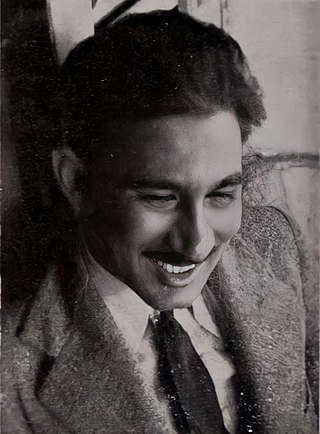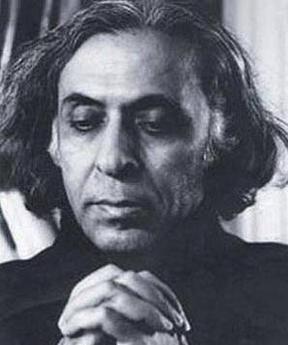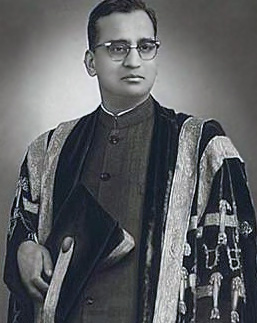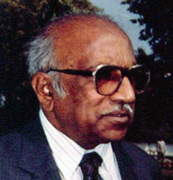Related Research Articles

Khwaja Ahmad Abbas was an Indian film director, screenwriter, novelist, and journalist in Urdu, Hindi and English.

The prime minister of India is the head of government of the Republic of India. Executive authority is vested in the prime minister and his chosen Council of Ministers, despite the president of India being the nominal head of the executive. The prime minister has to be a member of one of the houses of bicameral Parliament of India, alongside heading the respective house. The prime minister and his cabinet are at all times responsible to the Lok Sabha.

Rasipuram Krishnaswami Iyer Narayanaswami, better known as R. K. Narayan, was an Indian writer and novelist known for his work set in the fictional South Indian town of Malgudi. He was a leading author of early Indian literature in English along with Mulk Raj Anand and Raja Rao.

Bhimrao Ramji Ambedkar was an Indian jurist, economist, social reformer and political leader who headed the committee drafting the Constitution of India from the Constituent Assembly debates, served as Law and Justice minister in the first cabinet of Jawaharlal Nehru, and inspired the Dalit Buddhist movement after renouncing Hinduism.

Bajirao I was the 7th and most powerful Peshwa of the Maratha Confederacy. He, after Shivaji, is considered to be the most charismatic and dynamic leader in Maratha history. He was just twenty years old and already had a reputation for rapid decisions and a passion for military adventure.

Mulk Raj Anand was an Indian writer in English, recognised for his depiction of the lives of the poorer class in the traditional Indian society. One of the pioneers of Indo-Anglian fiction, he, together with R. K. Narayan, Ahmad Ali and Raja Rao, was one of the first India-based writers in English to gain an International readership. Anand is admired for his novels and short stories, which have acquired the status of classics of modern Indian English literature; they are noted for their perceptive insight into the lives of the oppressed and for their analysis of impoverishment, exploitation and misfortune. He became known for his protest novel Untouchable (1935), which was followed by other works on the Indian poor such as Coolie (1936) and Two Leaves and a Bud (1937). He is also noted for being among the first writers to incorporate Punjabi and Hindustani idioms into English, and was a recipient of the civilian honour of the Padma Bhushan.

Keshav Baliram Hedgewar, also known by his moniker Doctorji was a Hindutva activist, physician and the founder of the Rashtriya Swayamsevak Sangh (RSS). Hedgewar founded the RSS in Nagpur in 1925, based on the ideology of Hindu nationalism.

Raja Rao was an Indian-American writer of English-language novels and short stories, whose works are deeply rooted in metaphysics. The Serpent and the Rope (1960), a semi-autobiographical novel recounting a search for spiritual truth in Europe and India, established him as one of the finest Indian prose stylists and won him the Sahitya Akademi Award in 1963. For the entire body of his work, Rao was awarded the Neustadt International Prize for Literature in 1988. Rao's wide-ranging body of work, spanning a number of genres, is seen as a varied and significant contribution to Indian English literature, as well as World literature as a whole.

Kandukuri Veeresalingam was a social reformer and writer from the Madras Presidency, British India. He is considered as the father of the Telugu Renaissance movement. He was one of the early social reformers who encouraged the education of women and the remarriage of widows. He also fought against child marriage and the dowry system. He started a school in Dowlaiswaram in 1874, constructed the 'Brahmo Mandir' in 1887 and built the 'Hithakarini School' in 1908 in Andhra Pradesh. His novel Rajasekhara Charitramu is considered to be the first novel in Telugu literature.

Subramanian Swamy is an Indian politician, economist and statistician. Before joining politics, he was a professor of Mathematical Economics at the Indian Institute of Technology, Delhi. He is known for his Hindu nationalist views. Swamy was a member of the Planning Commission of India and was a Cabinet Minister in the Chandra Shekhar government. Between 1994 and 1996, Swamy was Chairman of the Commission on Labour Standards and International Trade under former Prime Minister P. V. Narasimha Rao. Swamy was a long-time member of the Janata Party, serving as its president until 2013 when he joined the Bharatiya Janata Party (BJP). He has written on foreign affairs of India dealing largely with China, Pakistan and Israel. He was nominated to Rajya Sabha on 26 April 2016 for a six-year term, ending on 24 April 2022.

A Divya Desam or Vaishnava Divya Desam is one of the 108 Vishnu and Lakshmi temples that is mentioned in the works of the Alvars, the poet-saints of the Sri Vaishnava tradition.
Indian English literature (IEL), also referred to as Indian Writing in English (IWE), is the body of work by writers in India who write in the English language but whose native or co-native language could be one of the numerous languages of India. Its early history began with the works of Henry Louis Vivian Derozio and Michael Madhusudan Dutt followed by Rabindranath Tagore and Sri Aurobindo. R. K. Narayan, Mulk Raj Anand and Raja Rao contributed to the growth and popularity of Indian English fiction in the 1930s. It is also associated, in some cases, with the works of members of the Indian diaspora who subsequently compose works in English.

Vijayendra Kasturi Ranga Varadaraja Rao was an Indian economist, politician and educator.
The Bidhan Chandra Roy Award is an award instituted in 1962 in memory of Dr. B. C. Roy by the Medical Council of India. It is presented by the President of India in New Delhi every year on July 1, National Doctors' Day. It is also the highest honour that can be achieved by a doctor in India.
A.R. Venkatachalapathy is an Indian historian, author and translator who writes and publishes in Tamil and English. Currently he is a professor at the Madras Institute of Development Studies (MIDS). He is noted for collecting and publishing the works of Tamil writer Pudhumaipithan.
Koneru Ramakrishna Rao was an Indian philosopher who served as Chancellor of GITAM, and as Chairman of GITAM school of Gandhian Studies, psychologist, parapsychologist, educationist, teacher, researcher and administrator. The Government of India awarded him the civilian honour of Padma Shri in 2011.

Rai Sahib / Rao Saheb / Roy Sahib / Rao Sahib abbreviated R.S., was a title of honour issued during the era of British rule in India to individuals who performed faithful service or acts of public welfare to the nation. From 1911 the title was accompanied by a special Title Badge. Translated, Rai means "King" Sahib means "Leader". Awarded during the reign of George VI. For another image of the badge see link This was the start level title usually awarded to civilians, which could later be upgraded to Rao Bahadur and then to Dewan Bahadur titles.

Pamulaparthi Venkata Narasimha Rao, popularly known as P. V. Narasimha Rao, was an Indian lawyer, statesman and politician from the Indian National Congress Party who served as the prime minister of India from 1991 to 1996. He was the first person from South India and second person from a non-Hindi speaking background to be the prime minister. He is especially known for introducing various liberal reforms to India's economy by recruiting Manmohan Singh as the finance minister to rescue the country from going towards bankruptcy during the economic crisis of 1991. Future prime ministers continued the economic reform policies pioneered by Rao's government. Rao was also referred to as Chanakya for his ability to steer economic and political legislation through the parliament at a time when he headed a minority government.
Raghu Ram Pillarisetti is an Indian surgeon, and the Founder and Director of KIMS-Ushalakshmi Center for Breast Diseases at KIMS Hospitals. Pillarisetti is the founder of Ushalakshmi Breast Cancer Foundation, a not-for-profit organisation, and Pink Connexion, a quarterly newsletter about breast healthcare.

Nagarur Gopinath was an Indian surgeon and one of the pioneers of cardiothoracic surgery in India. He is credited with the first successful performance of open heart surgery in India which he performed in 1962. He served as the honorary surgeon to two Presidents of India and was a recipient of the fourth highest Indian civilian award of Padma Shri in 1974 and Dr. B. C. Roy Award, the highest Indian medical award in 1978 from the Government of India.
References
- 1 2 3 4 5 Special, Correspondent (2 November 2004). "Tearful adieu to Kommuri". The Hindu . Retrieved 19 December 2016.[ dead link ]
- ↑ Rajan, P.K.; S, Prabhakar Rao (1989). The Growth of the novel in India, 1950-1980 (1. publ. in India. ed.). New Delhi: Abhinav Publications. pp. 93–102. ISBN 8170172594 . Retrieved 19 December 2016.
- ↑ Mohan, lal (1992). Encyclopaedia of Indian Literature: Sasay to Zorgot (1 ed.). New Delhi: Sahitya Akademi. p. 3896. ISBN 9788126012213.
- 1 2 Veeraji (29 September 2006). "Doing the write thing". The Hindu . Retrieved 19 December 2016.